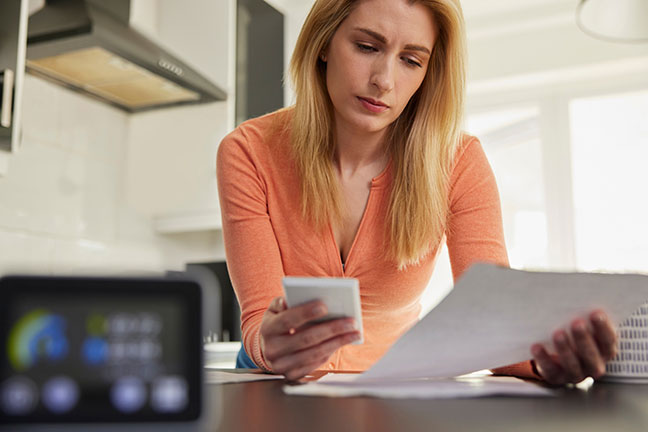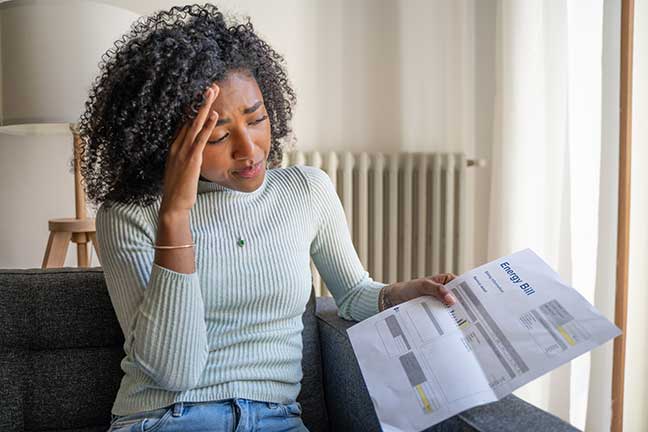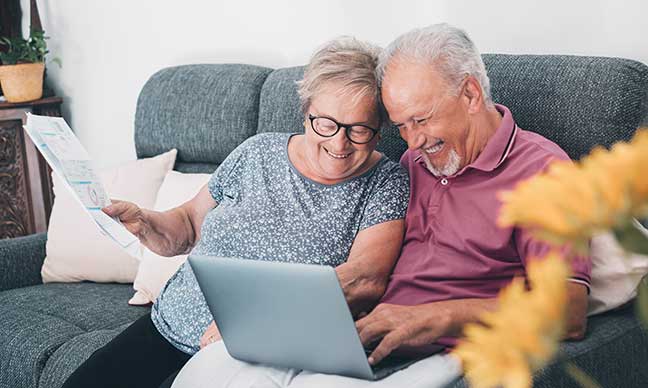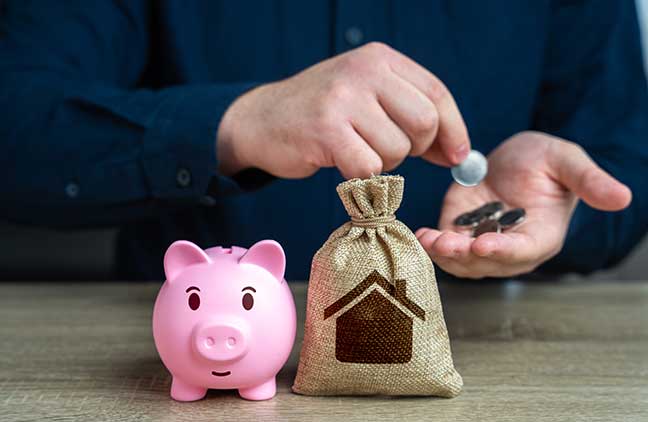Low-income households in Georgie struggling with high energy cost are facing enormous financial pressure. Especially during the winter, it is important for them to be able to access benefits offered by the Low-Income Home Energy Assistance Program (LIHEAP), so that they can continue to afford things like home heating.
In this guide, we will cover how LIHEAP provide energy aid and other utility help to qualified residents in Georgia.
What is LIHEAP Assistance?
The Georgia Low Income Home Energy Assistance Program (LIHEAP) is a federally-funded program providing help for winter heating, summer cooling, and crisis situations when facing disconnection. In short, it helps qualified low-income households in the state afford their energy expenses and is funded annually based on the federal government budget.
In Georgia, the program is administered through Georgia Community Action Agencies (CAAs)The program primarily supports those using natural gas or propane for heating, directly paying utility companies on behalf of eligible households.
Eligibility and Application Process for LIHEAP in Georgia
To receive LIHEAP assistance in Georgia, you must:
- Be a U.S. citizen or legally admitted immigrant.
- Be a resident of Georgia and you must need financial assistance with home energy costs.
- Have total gross annual household income at or below 60% of the State’s Median Income, which means $28,059 for a household of 1, $36,693 for household of 2, $45,326 for 3, $53,960 for 4, $62,593 for 5, $71,227 for 6, $72,845 for 7, and $74,464 for 8
(*For households with more than eight people, add $1,619 per additional person.) - Have full responsibility for paying the cost of energy bills for the primary home heating source.
In addition, if you participates or has family members who participate in certain other benefit programs, such as SNAP (Supplemental Nutrition Assistance Program), SSI (Supplemental Security Income), or Medicaid, you may automatically meets the eligibility requirement.
Native American households can also apply through their tribe, federal government or the state, but you cannot receive assistance for the same program from both during the same federal fiscal year.
Applying for LIHEAP Financial Assistance
Contact Your Local LIHEAP Office:
To apply for LIHEAP in Georgia, you need to reach out to your local LIHEAP office in the state to inquire about the application process and obtain the necessary forms. You can find the contact information for your local office on the Georgia Division of Family and Children Services (DFCS) website.
Required Documentation: Be prepared to provide the following when applying:
- Most recent home energy bill.
- Final Utility Termination Notice, if applicable.
- Proof of income (such as paycheck stubs).
- Photo identification for all adult household members.
- Social security cards or numbers for all household members.
- Proof of U.S. citizenship or permanent residence.
Phone Assistance
If you need help or have questions about the application process, you can call the LIHEAP hotline at 1-404-657-3427. They can provide guidance and answer any queries you may have.
How LIHEAP is Helping People in Georgia
Like other states, LIHEAP has benefited eligible households in Georgia in many ways, and here are some common impacts the program have made:
Reduced Energy Burden
LIHEAP helps eligible low-income households by providing financial assistance to reduce their energy burden. This assistance helps ensure that families in Georgia can afford basic heating or cooling needs, especially during extreme weather conditions.
Prevented Utility Service Disconnection
The program plays a crucial role in preventing utility service disconnection for eligible households. By providing financial assistance, the program helps ensure that families do not face the immediate threat of losing essential energy services.
Improved Energy Efficiency
Some LIHEAP programs include components focused on improving energy efficiency in homes. This may involve weatherization services, insulation, and other measures to make homes more energy-efficient, leading to long-term cost savings.
Support for Vulnerable Populations
LIHEAP often prioritizes assistance for vulnerable populations in Georgia, including elderly individuals, people with disabilities, and families with young children. This targeted support helps address the specific needs of those who may be more susceptible to the impacts of extreme temperatures.
Temporary Financial Relief
LIHEAP provides temporary financial relief to eligible households during times of financial hardship. The one-time payment or ongoing assistance helps families meet their immediate energy needs, allowing them to allocate resources to other essential expenses.
Crisis Intervention:
LIHEAP’s crisis intervention component helps households facing immediate energy-related emergencies. This can include situations where utility services are at risk of being disconnected.
Community Stability:
By assisting low-income households with energy costs, LIHEAP contributes to community stability. Families can better maintain their living conditions and avoid disruptions caused by utility service disconnections.
Additional Resources for Utility Assistance in Georgia
In addition to LIHEAP, there are other programs and resources in Georgia that may provide utility assistance or related support for individuals and families facing financial challenges. Here are some options to explore:
Georgia Power’s Senior Citizen Discount
Georgia Power offers a discount to senior citizens (65 years or older) on their monthly bill. Eligible customers can contact Georgia Power’s customer service for more information.
Community Action Agencies
Community Action Agencies (CAAs), the same nonprofit organizations that administer LIHEAP in Georgia, operate in various communities and provide a range of services, including other utility assistance. You can contact your local CAA to inquire about available programs and resources.
Salvation Army
The Salvation Army operates in many communities across Georgia and may offer emergency financial assistance for utility bills. Contact your local Salvation Army office for information on available assistance programs.
United Way 211
United Way’s 211 helpline is a valuable resource that connects individuals with various social services, including utility assistance programs. Dial 211 or visit the United Way 211 website to access information and referrals.
Georgia Department of Human Services (DHS)
The Georgia DHS offers various assistance programs. Visit the DHS website or contact local offices to inquire about available programs that may provide support for utility bills.
Local Charities and Nonprofits
Many local charities and nonprofits provide assistance to individuals and families in need. Reach out to organizations in your community to inquire about available utility assistance programs.
Energy Assistance Programs from Utility Companies
Some utility companies may have their own assistance programs for customers facing financial difficulties. Contact your utility provider to inquire about any available programs or payment assistance options.
Weatherization Assistance Program (WAP)
The Weatherization Assistance Program (WAP) helps eligible low-income households improve energy efficiency in their homes, leading to long-term energy cost savings. Contact your local Community Action Agency or the Georgia Environmental Finance Authority for more information.
Exploring Additional Assistance with EASY Wireless
For those who have utilized programs like SNAP, which may have helped you qualify for LIHEAP, there’s an additional opportunity with EASY Wireless.
You might also be eligible for the Affordable Connectivity Program (ACP) through EASY Wireless, offering FREE Monthly Unlimited Talk, Text, and Data Cell Phone and Data service. This program is designed to help keep you connected without the financial burden of an expensive phone bill.
Learn how to eliminate your monthly cell phone bill, saving you on average $50-$100 monthly at EASY Wireless.
A Step Towards Financial Stability
If you find yourself struggling with energy costs, consider applying for LIHEAP. And remember, additional assistance through programs like the ACP with EASY Wireless is also available, ensuring you stay connected in today’s digital world. Explore these opportunities and take a step towards easing your financial pressures.





